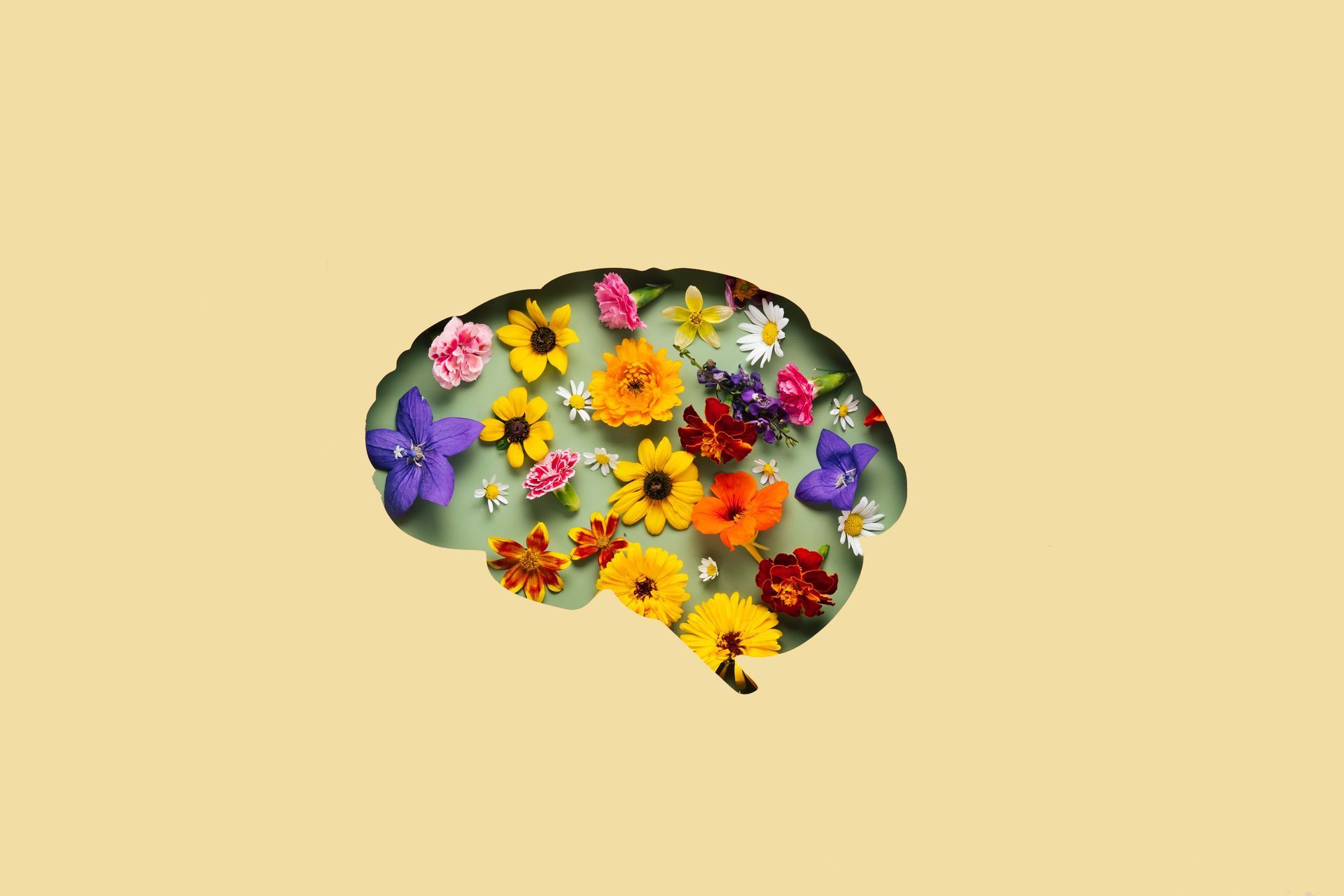Integrating Mind, Body, and Spirit: The Holistic Approach to Mental Health
Discover the transformative power of holistic mental health in our insightful article, guiding you to reconnect with your authentic self through mind, body, and spirit balance. Explore practical steps and the healing benefits of Reiki and yoga, presented by experienced therapist Erin Freeman, to enhance your emotional and physical well-being. This piece is an essential read for anyone seeking a fulfilling, balanced life amidst the complexities of modern living.

Introduction
You might be here because, somewhere along the line, amidst the hustle of careers or the joys and challenges of starting a family, you’ve felt a bit disconnected from yourself. Or perhaps, life’s unexpected turns made you question your path. If you're longing for those simpler times and feeling guilty for it, or if you feel life is passing by without ticking those boxes society set for us in our youth, I want you to know, you're not alone. And more importantly, there's still a flicker of hope for each of us to recapture our true, authentic selves.
In this space, we talk about integrating our mind, body, and spirit to achieve a state of mental wellness that's not just about coping, but thriving. It’s about understanding that our mental wellness is deeply connected to our physical and spiritual selves. We're going to explore how methods like Reiki and yoga, which I personally use in my therapy sessions, can help you thrive in life. Whether you’re new to this concept or seeking more depth in your current practices, I’m here to guide you through understanding how a holistic approach can be life-changing.
Understanding Holistic Mental Health
Let's start by understanding what we mean by 'holistic mental health.' It’s a term that gets thrown around a lot, but what does it reeeeally mean? Holistic mental health is about looking at you as a whole person, not just a set of symptoms or a label. It’s recognizing that your emotional well-being is intricately linked with your physical health and spiritual balance.
Think of it this way: when one part of a system is out of sync, it can throw the whole system off balance. Our minds, bodies, and spirits are interconnected in just the same way. If our emotional health is suffering, it can manifest physically. Maybe you’ve noticed tension headaches when you’re stressed or a lack of energy when you’re down. Similarly, when our physical health isn’t at its best, it can affect our mood and mindset.
In my practice, I’ve seen firsthand how addressing all these aspects together leads to more profound and lasting healing. It’s not just about treating symptoms; it’s about nurturing your entire being. So, when we talk about a holistic approach, we’re talking about strategies and therapies that encompass all these facets of who you are. This method empowers you to take control of your health and well-being in a more complete and fulfilling way.
Benefits of a Holistic Mind-Body-Spirit Approach
You might be wondering, “What’s in it for me with a holistic approach?” The benefits are many, and they touch every aspect of your life. For starters, this approach can lead to a deeper understanding of yourself. More than just identifying what’s wrong; but discovering your strengths, your triggers, and your paths to healing. This self-awareness is a powerful tool in navigating life’s challenges.
Next, there’s the aspect of balance. A holistic approach helps balance not just your mental health, but your physical and spiritual well-being too. It’s like finding the perfect blend that works for you. For many of the women I work with, this balance is key to feeling more in control and less at the mercy of the everyday ups and downs.
This approach is incredibly empowering. It encourages you to take an active role in your healing journey. You're an active participant in shaping your path to wellness, not just a passive recipient of care. This empowerment can be especially meaningful if you’ve felt like you’ve lost a bit of yourself in the hustle of life.
Lastly, holistic mental health practices often lead to more sustainable and long-lasting changes. They provide you with tools and strategies that you can use throughout your life, not just during difficult times. This means you’re building a foundation of wellness that can support you as you grow throughout the rest of your life.
The Healing Power of Reiki
Now, let's dive into the world of Reiki, a practice that I hold dear in my therapeutic work. Reiki, an ancient form of energy healing, might sound mystical, but its effects are deeply grounded in real, tangible outcomes. It’s based on the idea that a life force energy flows through us, and when this energy is low or blocked, it can lead to physical or emotional imbalance. Reiki aims to improve the flow of this energy, promoting healing and relaxation.
How does Reiki work in a therapy setting?
I utilize distance Reiki, which is a hands-off approach to Reiki, in the therapy process. This can include sending energy from myself to the client and the use of mantras or sacred symbols. While there is no physical touch, some clients describe feeling an exchange of energy, warmth, or comforting sensation during this process.
But it’s more than just relaxation. Reiki can be a powerful tool in managing anxiety and stress, which are common challenges among the women I work with. By helping to calm the mind, ignite energy, and reduce energy blockages, it creates space for deeper emotional healing. It’s about tapping into your body’s own healing capabilities, giving you a sense of empowerment and control over your well-being.
I’ve seen remarkable transformations in my clients who were initially skeptical about Reiki. Once they experience its benefits, they often find it to be an essential part of their mental health toolkit. It’s a gentle yet powerful way to nurture not just your mind but your spirit too, bringing everything into a harmonious balance.
Yoga as a Tool for Emotional and Mental Well-being
Yoga is another cornerstone of the holistic approach that I passionately advocate in my practice. Although some people think yoga is just a series of physical poses, it's much more than that. It’s a path to connecting your mind, body, and spirit. In the context of mental health, yoga offers a unique blend of physical activity, mindful awareness, breath work, and emotional release.
The physical benefits of yoga are well-known – improved flexibility, strength, and balance. But its mental and emotional benefits are just as significant. Yoga encourages mindfulness, the practice of being present in the moment. This mindfulness can be a powerful antidote to the stresses of daily life, especially for those feeling overwhelmed by the demands of career or family. It helps in cultivating a mental space where you can step back, observe your thoughts and emotions without judgment, and gain perspective.
In my sessions, I incorporate yoga poses that are specifically effective for emotional healing. I often utilize postures to release physical tension in areas where trauma and somatic stress are stored, and also in fostering an inner sense of strength and calm. The breathing techniques, or pranayama, used in yoga, are also incredibly beneficial. The focus on the breath allows you to increase attunement with your mind and body and increase present orientation. They help regulate the nervous system, reducing anxiety and inducing a state of relaxation.
Many of my clients have found that incorporating yoga into their therapy and routine has led to significant improvements in their mental health. They report feeling more grounded, more in tune with their emotions, and better equipped to handle stress. The beauty of yoga is that it's accessible to everyone, regardless of age or fitness level. We are not focusing on perfecting a pose, but finding what feels good and healing for you.
Enhancing Traditional Therapy with Reiki and Yoga
As a therapist, I deeply value traditional therapy methods for their proven effectiveness in addressing mental health issues. However, I've found that integrating practices like Reiki and yoga can significantly enhance these methods. This combination brings a more rounded, comprehensive approach to healing.
When we blend traditional therapy with Reiki, we’re adding an extra layer of healing that addresses the energy flow within the body. We start tapping into the body's innate healing capacity while also working through emotional and psychological challenges in therapy sessions. This dual approach can accelerate the healing process, making therapy more holistic and effective.
Similarly, incorporating yoga into the therapeutic process brings a unique dimension. It allows clients to engage their bodies while they're working through emotional and somatic challenges, creating a powerful synergy. For example, while discussing anxiety or stress in therapy, I might guide a client through specific yoga poses that help manage these feelings. This not only provides immediate relief but also equips them with practical tools they can use outside of therapy.
This integrated approach is particularly beneficial for clients dealing with trauma or deep-seated emotional issues. Reiki can help in releasing the energy trapped by trauma in the body, while yoga fosters physical and mental resilience. Together, they help in grounding the client, making it easier to tackle difficult emotional work in therapy.
By incorporating these holistic practices, therapy becomes not just a process of talking and analyzing but also a journey of healing through the body and spirit. It empowers you, as a client, to engage in your healing process more actively and holistically.
Practical Steps to Integrate Mind, Body, and Spirit
Now, let’s talk about how you can practically integrate these holistic practices into your life. It's wonderful to understand the theory, but the real magic happens when you put it into practice. Here are some steps you can take to begin integrating your mind, body, and spirit for better mental health:
Start with Small, Manageable Goals:
If you’re new to practices like yoga or Reiki, start small. It could be as simple as dedicating 10 minutes a day to meditation or attending a yoga class once a week. The key is consistency, not intensity.
Create a Personal Space for Practice:
Find a quiet, comfortable spot in your home where you can practice meditation, yoga, or self-Reiki. This space doesn’t have to be large or elaborate – just a peaceful corner where you won’t be disturbed.
Incorporate Mindfulness into Daily Activities:
Mindfulness doesn’t have to be confined to meditation. Try to be present in your daily activities – whether it’s while eating, taking a walk, or even during your work. Pay attention to your senses and the experience of the moment.
Journaling for Reflection:
Keep a journal to reflect on your experiences and feelings. This can be a great way to track your progress and notice patterns or changes in your emotional state over time.
Connect with Your Body:
Pay attention to the signals your body gives you. This could be through engaging in gentle stretches, noticing areas of tension, or simply being aware of your breath.
Seek Guidance When Needed:
If you’re interested in Reiki or more advanced yoga practices, consider reaching out and booking a free consultation with me. I can provide personalized support tailored to your needs.
Practice Regular Self-Care:
Self-care is an essential part of a holistic approach to mental health. This includes getting enough sleep, eating healthily, and engaging in activities that bring you joy and relaxation.
Be Patient and Kind to Yourself:
Remember, this is a journey, not a race. Be patient with yourself as you explore these new practices. Celebrate your progress, no matter how small it may seem.
By integrating these steps into your life, you’ll start to notice a shift in your mental, physical, and
spiritual well-being. It’s about creating a balanced lifestyle that nurtures all aspects of your being.
Addressing Common Mental Health Issues Holistically
In my practice, I often encounter women grappling with common mental health issues like anxiety, depression, and stress. A holistic approach can be incredibly effective in managing these challenges. Let’s explore how integrating mind, body, and spirit can specifically address these concerns.
For anxiety, the calming effects of yoga and the energy-balancing properties of Reiki can be particularly beneficial. Yoga’s focus on mindful breathing and movement helps in managing the physical symptoms of anxiety, like rapid heartbeat and shallow breathing. Reiki, with its emphasis on energy flow, can aid in releasing the pent-up tension that often accompanies anxiety.
When it comes to depression, the combination of physical activity in yoga and the emotional release facilitated by Reiki can be a powerful duo. Yoga stimulates the production of endorphins, the body’s natural mood lifters, while Reiki can help in unblocking emotional stagnation, which is often a factor in depression.
For those dealing with stress, this holistic approach offers a way to physically release tension through yoga while also finding a deep sense of peace and grounding through Reiki. I want to equip you with tools to not just cope with stress, but to actively reduce and manage it.
These practices are not just about symptom relief; they’re about fostering an overall sense of well-being and resilience. By addressing your mental health holistically, you’re working towards a more balanced, harmonious state of being.
The Role of Mindfulness and Meditation
Mindfulness and meditation are key components in the holistic approach to mental health. They act like anchors, keeping us grounded in the present moment, which is incredibly powerful for mental well-being.
Mindfulness is about being fully present and engaged with whatever we’re doing, free from distraction or judgment. When practiced regularly, it can significantly reduce the mental chatter that often leads to stress and anxiety. It allows us to observe our thoughts and feelings without getting swept away by them.
Meditation, on the other hand, provides a structured way to practice mindfulness. It can be as simple as sitting quietly and focusing on your breath. This practice trains your mind to focus and redirect your thoughts, which can be particularly helpful in managing stress, anxiety, and depression.
Incorporating even a few minutes of mindfulness or meditation into your daily routine can make a noticeable difference in your mental clarity, emotional stability, and overall sense of peace. It’s a small investment of time for a significant return in mental health benefits.
Beginning Your Holistic Mental Health Journey
Embarking on your holistic mental health journey can be both exciting and daunting. Remember, this is a personal journey, and it’s all about finding what works best for you. Here are some steps to get you started:
Reflect on Your Needs and Goals:
Take some time to think about what you hope to achieve through a holistic approach. Is it stress reduction, better emotional balance, or something else?
Start Slowly:
Begin with small, manageable practices. This could be a few minutes of meditation daily, or a beginner’s yoga class once a week.
Seek Support:
Don’t hesitate to reach out for guidance. Whether it’s a yoga instructor, a Reiki practitioner, or a mental health therapist, having professional support can be invaluable.
Be Open to Experimentation:
Be willing to try different practices to see what resonates with you. Holistic health is not one-size-fits-all.
Stay Committed:
Like any journey, there will be ups and downs. Stay committed to your practices, and be patient with yourself as you navigate this path.
This journey is about rediscovering and reconnecting with your true self. It’s a path to better your mental health, which leads to a more fulfilled, balanced life.
Science Backing Holistic Approaches
While holistic practices like yoga and Reiki might seem more spiritual than scientific, there’s a growing body of research supporting their benefits for mental health. Studies have shown that yoga can significantly reduce symptoms of anxiety and depression, largely due to its ability to lower cortisol levels, the body’s stress hormone. Reiki, too, has been found to reduce stress and anxiety, promoting a sense of well-being. These practices affect the brain's neuroplasticity, helping to create positive changes in brain function and structure. So, when we talk about integrating mind, body, and spirit, it's not just philosophical – it’s backed by science.
Conclusion
As we wrap up our exploration of integrating mind, body, and spirit for holistic mental health, remember that your journey is deeply personal and immensely rewarding. It’s about nurturing your entire being, not just mental health. Whether through the calming energy of Reiki, the empowering poses of yoga, or the grounding practice of mindfulness and meditation, you have the power to transform your well-being. Embrace your path with an open heart. Book a free consultation with me, Erin Freeman from But First, Heal Thyself in Virginia Beach. I will walk with you and together, we will ignite the pursuit of your true, authentic self.
Recent Articles:


Feel Free To Share on:
Book a Free Consultation Today

Erin Freeman
Licensed PROFESSIONAL COUNSELOR
Hello! I am Erin
I hope this article was able to help you in any way. If you would like to chant more about the challenges you are going through, Book a free consultation and I would be happy to meet you :)
See our other articles



